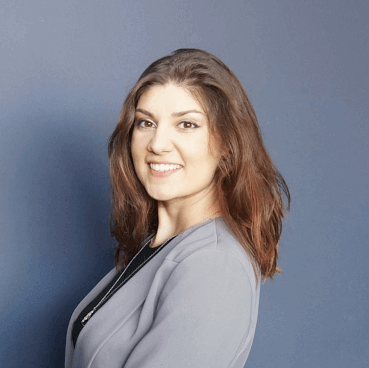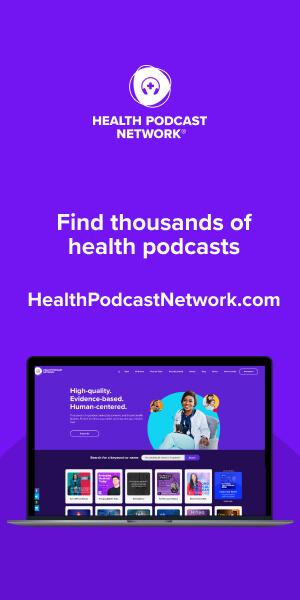By Demi Radeva
During this year’s annual HLTH conference in Boston, I was lucky to sit down and chat with Dr. Lisa Fitzpatrick, a physician, medical epidemiologist and founder of Grapevine Health. Grapevine Health creates and delivers trusted and relatable health information to underserved communities, with the goal of empowering people to adopt good habits and take charge of their health. Health information is delivered by trusted messengers– who can meet people where they are– in both in-person and virtual format.
Lightning Round:
What is a saying, quote, or phrase that motivates you?
“Life shrinks or expands in proportion to one’s courage.” – Anais Nin
What advice do you have for other innovators?
Follow your instincts. The culture of health tech and health innovation causes you to doubt yourself. The language people use, the structure of it all makes you feel like an outsider and like you need validation. You feel like you need to conform just to get people to listen to you, but you don’t.
What is a book that has impacted you?
The Monk Who Sold His Ferrari by Robin Sharma. This book led me to adopt a deathbed mentality. At any moment each of us can die, so how can we ensure we are fulfilled in every moment?
What is a piece of technology that makes your life easier?
My cell phone. However, I have no single application on the phone. I simply use the notes function or call people.
What is a space in healthcare that isn’t getting much attention but should?
Health literacy. It leads to all avoidable costs in health care. It sounds too simplistic to say that we should help people understand health information. Sure, we all can Google things, but that leads to information overload. That’s why I created Grapevine Health. I wanted to make it easier for people by creating relatable, fun health content to help them navigate healthcare and make it less scary.
‘
Deep Dive:
Do we judge people for not taking care of their health?
Yes. It’s easy. Everyone is talking about social determinants of health right now. And this is why sometimes I tend to be quiet in meetings– especially if I’m a new person– because I’m always the person who’s raining on everybody’s parade.
We have been talking about social determinants of health forever. When I got my master’s in public health in the 2000s, one of my professors – Lyn Syme – was the father of social epidemiology from the 1960s. This is not a new concept. (note hyperlink)
Everyone acts like the social determinants of health are impacting people’s ability to connect to health care, but the truth of the matter is, nobody wants to think about their health, myself included. I know so much about the healthcare system and how to navigate it, but when something goes wrong with me, I ignore it, just like everybody else.
What should we do to activate people to want to think about their health?
Let me tell you a story. I recently developed sleep apnea. The only reason I discovered this was because sleeping through the night was a huge priority for me. I started waking up at two or three in the morning, and it wasn’t because of stress or having too many deadlines. None of that was happening, yet I was wide awake. I started wondering what was happening to me. After calling a friend of mine who is a pulmonologist, he recommended I do a sleep apnea test and sure enough it was sleep apnea. And it was bad.
I asked my doctor, “Do you think I can reverse this just by losing weight?” And he said every 10% weight loss translates to a 30% reduction in sleep apnea. To which I said, “Challenge accepted!” I had been gaining weight for years, but nothing helped me crystalize why I needed to lose weight until he said that.
Ultimately, we need to figure out how to innovate around that one thing– or at most, a bucket of things– for each individual to get him or her back to health. It isn’t an infinite number of interventions.
This story shows you these are not technology problems. These are human problems, and we need to figure out how to solve for them.
Does technology play a part in the solution?
I think there is an obsession with technology. I think technology is definitely a part of the solution, but these are human issues. You still have to touch people, you still have to relate to them and get them to trust you. People are going to reject the notion that they can get more support from a robot. But robots are sexy to talk about.
So many business people have told me the only way for me to get my solution to scale is to add some tech, because that’s what business people and investors care about. I want to make money as much as the next person, but I also think there is a happy medium, which allows me to connect people to people.We download all these apps and then we do not use them, because they aren’t doing something for us that we absolutely love. It’s about people connecting to other people.
I want people all around the world to have access to trusted messengers and reliable and relatable information. Everyone asks the same questions, and they all have the same fears and concerns. We are looking at text messaging as a mechanism to connect with people and direct them to the resources they need, but I am really passionate about this concept that you can use media, video in particular, to connect to people and to build trust. I think that’s a real thing.
In your experience what has worked, or doesn’t work?
Let me tell you another story. I had a patient who was addicted to alcohol, and he would come into his planning visits, but he was afraid to take the leap and go on medication. But he came in one night, and he had been drinking, and said, “Okay, I’m ready, and I really need help.”
It was 7pm, and I didn’t know who could help this guy at that time of night. He was ready right then and he wanted to go into detox, but the system or solutions that exist clearly weren’t ready for him.
My department head at the time told me the guy was unlikely to get a bed that night at the detox center. The only other option was to send him to the ER and hope they could help. So then I called a friend of mine who works in a community organization, and she said they didn’t have anybody available to help at that time. As a physician, I stood there with nowhere to turn– the system failed me and the patient.
Two weeks later, a different guy, addicted to crack, comes into the clinic. It’s not his clinic day, but he’s looking for me. And I can tell he’s high and he’s just looking for help. I called down to our addiction prevention and recovery administration and said, “I have a guy who needs detox right now, like today. Can you help me?”
They asked if he had an ID. If so, he would have to go to this address, fill out some forms, and go through an intake process before the program would see if they could help him. I thought it was ridiculous.
Those kinds of stories set my hair on fire because we keep talking about how we’re going to help people, and we’re going to meet them, and we’re going to alleviate barriers. But today it is just as hard to get a mental health appointment or a detox bed in DC as it was back when this happened in 2009.
The reason none of these apps were working for Medicaid patients is because they had to have an email address or ID. They also needed to put in their insurance card, but if they didn’t have an insurance card, they had to put in a credit card before they could even get to the next step to get some sort of assessment. These companies are saying they started because they want to meet the needs of the people, but they’re falling into the same traps as everybody else because it is all being driven by money.
Here is an example. Unite Us was given $100 million by Kaiser. If I’m a doctor and my patient needs food, I can make a referral inside the application to one of the food service providers. Then I can go in to see if my patient actually went to get the food. But that doesn’t tell me anything about whether my patient is better because they got food. This solution, once again, only takes you part of the way.
One of our frustrations as doctors is when we refer people, we don’t know if the patient really got their problem addressed. The fundamental issue with social determinants services is that they should be managed by the public sector. But government employees are woefully undertrained, and a lot of them come from the same communities. They have attitudes and can be judgmental, even though they live next door to the person they are serving.
People are ashamed to get those services. They’re not treated with dignity. But this is where those services should be happening. The systems are not working for people; people are rude to you, you’re waiting forever, and it’s just not humane.
So how can we make sure we design effective solutions? And how are you making this a reality?
I can’t overemphasize the importance of listening to people. But it’s not listening through someone that the organization is comfortable bringing into the C suite. Rather, I want leadership to walk around their hospitals or clinics or in the community and actually talk to people and find out what’s going on there. Everyone likes to say they’re listening and they understand we have to meet people where they are, but who’s really doing that?
At Grapevine, we want to create relatable, fun content that is also easy to access, simple and straightforward, so patients engage in it early! We strive to answer: “How do we create a resource for people to get a trusted response at a moment of need?”
Dr. Fitzpatrick’s blog: https://www.linkedin.com/pulse/mid-career-shift-risk-worth-reward-fitzpatrick-md-mpa-mph-fidsa





